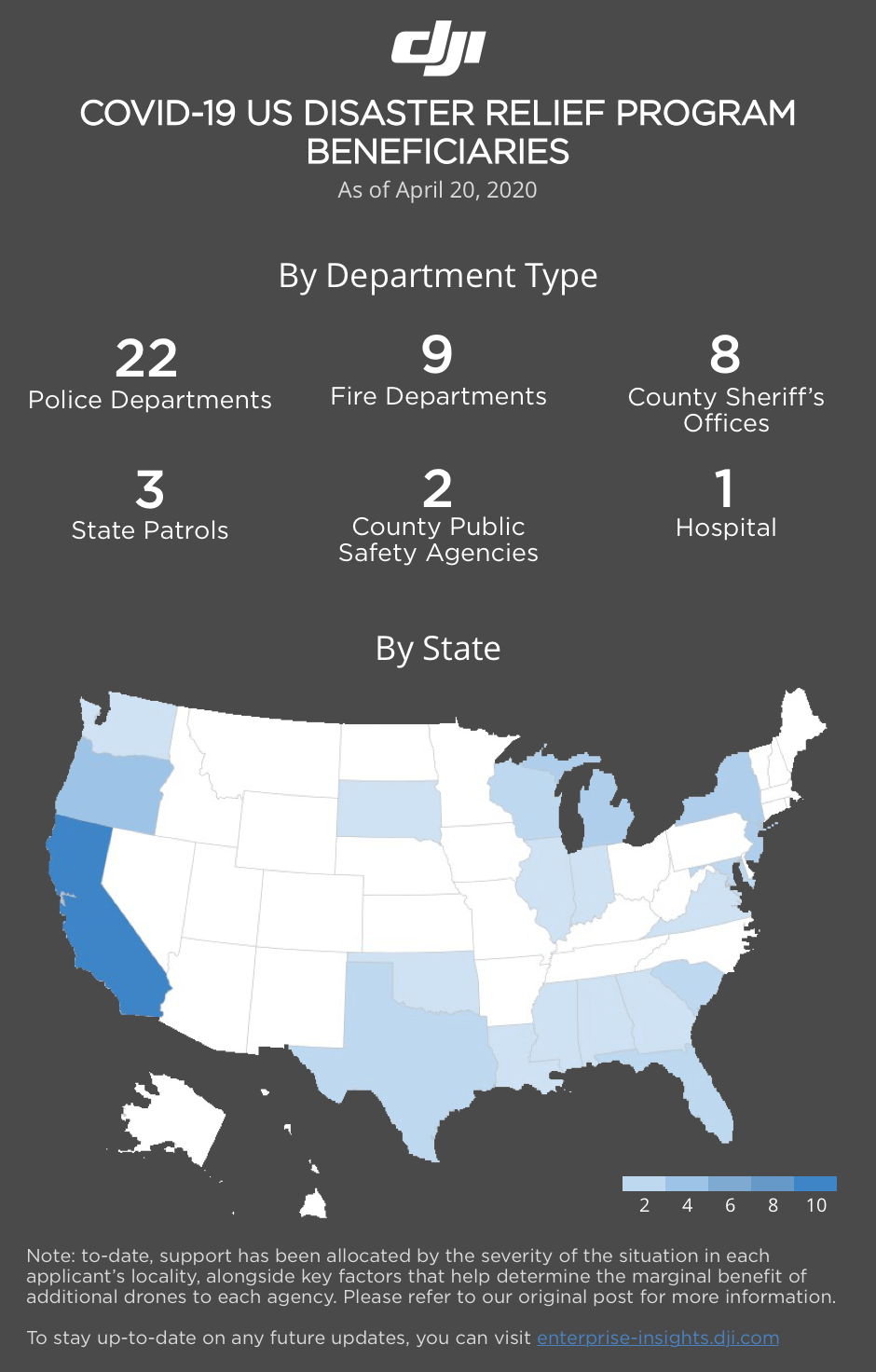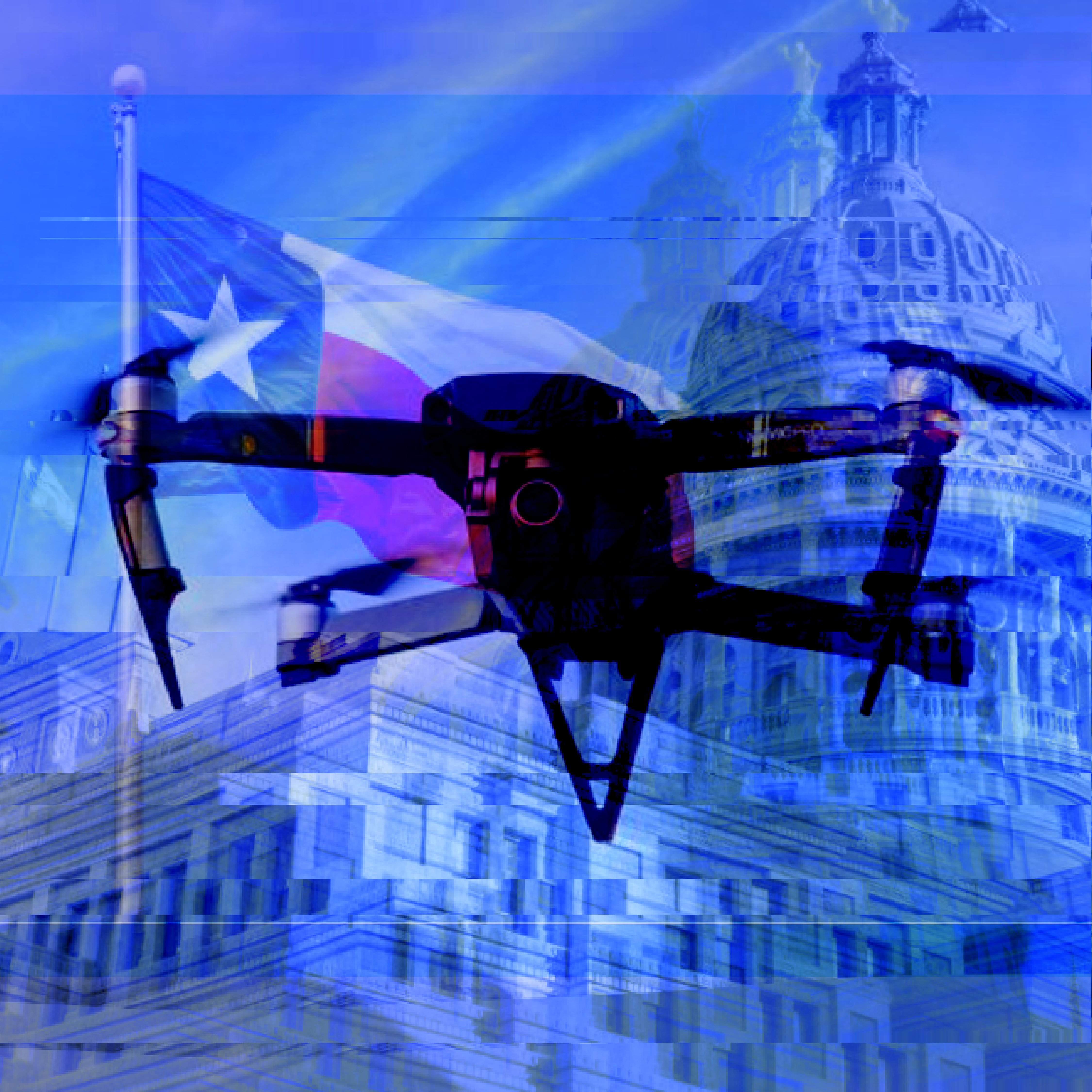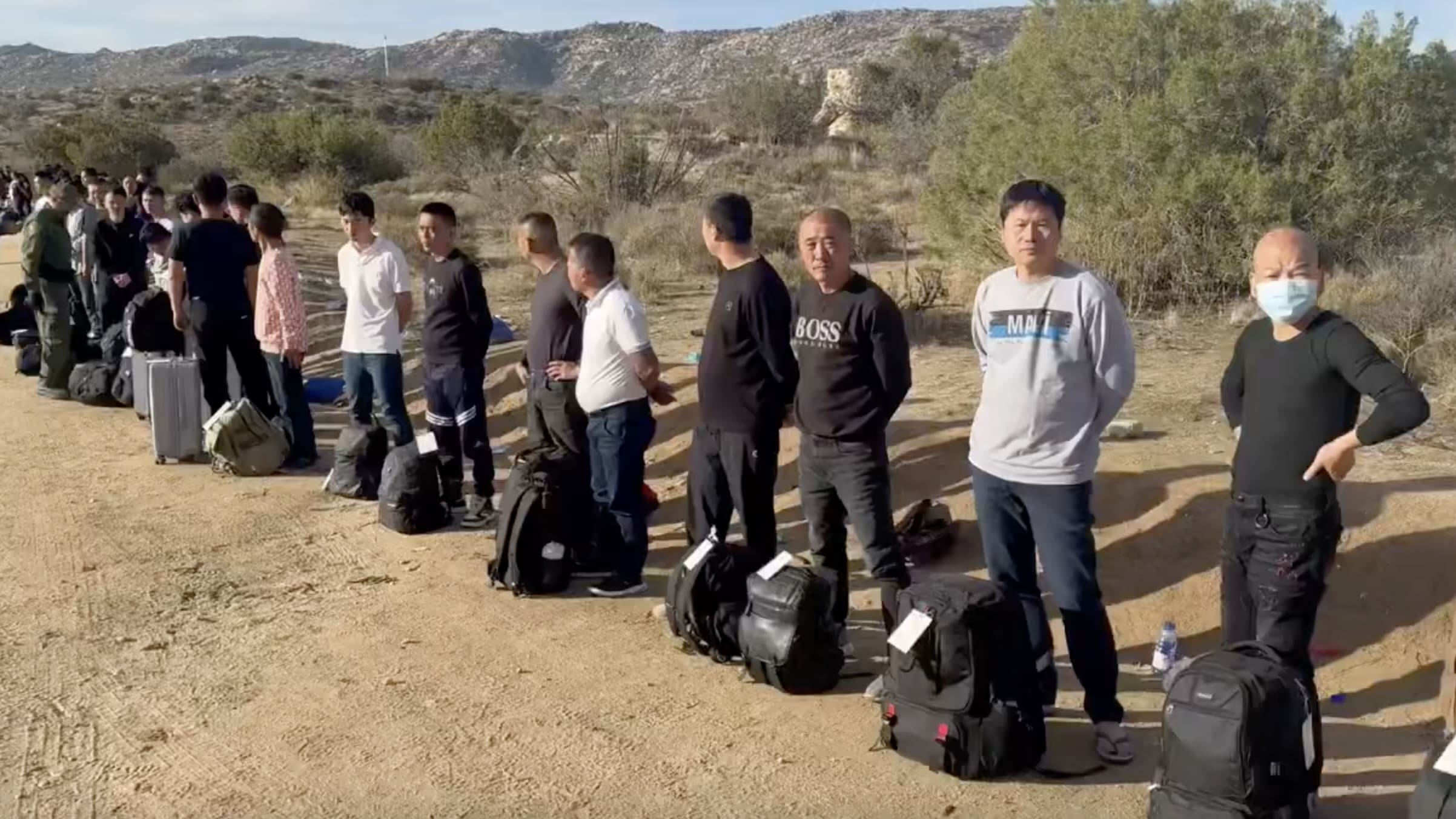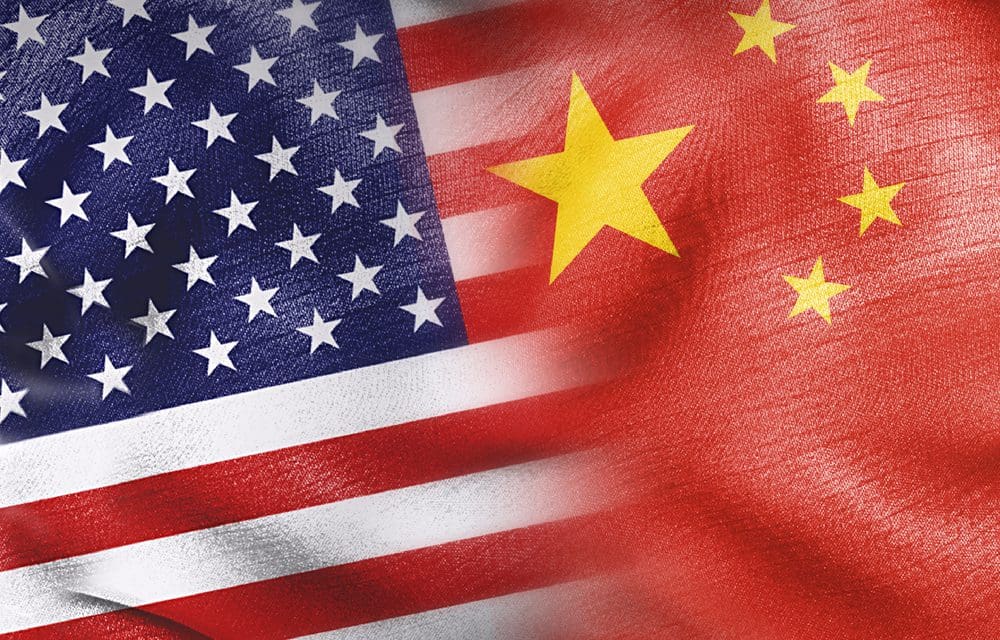Chinese Communist Party (CCP) drones are embedded in Texas government, representing a clear and present danger to Texans’ security.
Weeks ago, the Biden administration permitted a CCP spy balloon to leave China, enter American airspace, and conduct surveillance over thousands of miles of America. U.S. military installations were among the sites surveyed. It was not until after the spy balloon left American airspace that the Biden administration ordered the Pentagon to shoot the balloon down.
Since that time, reports have surfaced that American intelligence observed the spy balloon depart, and that last year another CCP spy balloon was suspected of flying near a U.S. military base. The spy balloon program is part of the CCP’s global surveillance effort, targeting other nations like Taiwan, Vietnam, India, and Japan.
In a previous interview with Texas Scorecard, State Rep. Tony Tinderholt (R–Arlington) explained the main reason for such efforts. “The Chinese, and other countries, are always collecting data, and what we call that data is EEFI, Essential Elements of Friendly Information,” he said. “It’s things they can collect in the … news, they can collect them by talking to military members, they can collect it by using drones.”
The incident in America has escalated citizen concern about the national security threat posed by the Communist Chinese government, as well as concerns about the U.S. federal government’s willingness or competence to defend the homeland.
In an apparent attempt to allay such suspicions, it has been widely reported that the U.S. military has been shooting down multiple objects out of the sky.
But balloons are only one component of the Chinese Communist Party’s espionage program. There is another embedded right now in Texas.
With Washington, D.C.’s competence and willingness in question, it begs the question as to what Texas’ elected public servants will do to protect the increasingly targeted Lone Star State.
Drone Wars
Last year, Texas Scorecard published a multi-faceted investigation of the CCP infiltration of Texas in four major areas: land, politics, education, and commerce. It was the subject of season three of our podcast: Exposed.
One aspect of that investigation focused on a popular consumer and industrial product: drones. That article exposed the threat of drone manufacturer Da Jiang Innovations (DJI), a company based in the Guangdong province of China. The Australian Strategic Policy Institute states DJI has 80 percent of the drone market in North America and 70 percent of the global market. At last report, they have more than 14,000 employees and 17 offices around the world, with a research and development center in Palo Alto, California. As of October 2020, DJI is worth more than $25 billion.
But DJI is not just another tech company. It has significant ties to the CCP.
The Australian Strategic Policy Institute (ASPI) found DJI’s founder and CEO, Frank Wang, is a member of the Shenzhen Political Consultative Congress. CCP money has flowed into the company through New Horizon Capital, founded by the son of former Chinese Premier Wen Jiabao, and New China Life Insurance, which is controlled by “state-owned enterprises.”
In the Chinese homeland, DJI drones have been used by the tyrannical government. “In December 2017, DJI signed a strategic cooperation agreement on police drones with Xinjiang Autonomous Region Public Security Department. The agreement includes deploying DJI drones in the department’s local police work,” ASPI found. “In July 2018, the Xinjiang Forest Public Security Department DJI UAV Training and Distribution Ceremony was held. DJI drones were distributed to public security organs at all levels by the autonomous region’s Public Security Department. The drones were supposed to serve both ‘stability maintenance, counter-terrorism’ and conservation purposes in the forested regions.”
ASPI also found DJI’s purpose. China Chengtong Holdings Group, another CCP-owned business, said DJI “adheres to the standard of Xi Jinping’s socialism with Chinese characteristics in the new era, and strives to build a world-class high-tech manufacturing enterprise with the standard of ‘walking in the forefront and setting an example.’” Xie Tandi, DJI’s public relations director, said as it develops technology, the company would “bear in mind the Party and the country’s entrustment.” Also, the Guangdong Work Committee reported DJI had “thoroughly studied and implemented the spirit of the 19th Party Congress.”
DJI, like many seemingly “private” companies in China, is a puppet of the CCP.
Who Really Controls Your CCP Drones?
State Rep. Tinderholt, a military veteran, previously told Texas Scorecard how DJI managed to corner the drone market: the CCP had engaged in “dumping.” That means the company had a $10,000 drone, and the CCP dumped $7,000 of Chinese taxpayers’ money into it, lowering the selling price to $3,000.
Some may argue that while DJI’s connections to the CCP are concerning, they are still providing cheap drones to Americans — drones that the consumer can use for good purposes. If one can use the tools of an opponent for a good cause, why should there be concern?
According to Tinderholt, it’s because DJI’s customers are not using the product; rather, the product is using the customer. “DJI was asked in an interview, ‘Do you ever give the data from these drones to the Chinese government?’ Meaning, do you give any of the video footage that’s uploaded to the cloud? And the answer is yes.”
Someone else has a different take.
Jeffrey DeCoux, Chairman of the Autonomy Institute—“a cooperative research & operational consortium focused on advancing Intelligent Infrastructure, autonomy, and AI at the edge”—says consumers can block the espionage. “If you just went and bought as a consumer, a DJI drone from the markets, plugged it in, and started using it, you’re immediately given options whether you want any data to be sent to the cloud,” he told Texas Scorecard. “When you talk about enterprise drones—the ones that are purchased by public safety and disaster responders and others—the enterprise drones can be purchased completely disconnected, so that the updated firmware and everything are on private servers. No data ever is sent unless they specifically want to do that.” He did add that for updating the firmware for consumer drones, based on what he recently saw, you’re connecting to AWS servers. “But as far as what other regions that’s connected to, various people have been doing an investigation on [that].”
DeCoux added these drones have gigabytes, and occasionally terabytes of data. “There is nobody that can actually pay for the cost of transmitting [that] data, and architecturally the wireless networks and such do not support transmitting that load of data.”
DeCoux has a history with drones. He previously raised $50 million and founded Hangar “which leveraged an autopilot to control drones.” “In our design, our architecture, we had complete control of the drone and complete control of the data path from the drone,” he said. “Now for public safety, a company called DroneSense, a Texas based company—the CEO is a gentleman named Chris Eyhorn, in Austin, Texas—has the same architecture. So all data, video feeds, everything is through his servers. Only Texas based, Texas stored, and that is why our data is isolated.”
Through DeCoux, Texas Scorecard asked Eynhorn for an interview. No response was received before publication. DroneSense’s website lists the Texas Department of Public Safety, as well as government agencies in five other states, including Florida and California, as customers. Transparency USA reports that DroneSense hired three lobbyists in Texas last fall: Jennifer Saenz, William G. Phenix, and William L. Temple. The combined pay for them altogether is in the range of $0 to more than $56,000. All three are part of the lobbying firm Phenix Saenz. Saenz was Deputy General Counsel and Policy Advisor for former Speaker of the House Dennis Bonnen (R) in 2019.
DeCoux emphasized he’s not defending DJI. “If I say some things about how we isolate data, I don’t want that [to] be perceived as I’m trying to protect DJI, because I think DJI, or really any device that’s not American built, that’s used by services, should be US secured. But there’s an evolution to get there.” He added that he’s known DJI since 2009 when they opened their first office in Austin, Texas. “I think from a US standpoint, I think anybody interprets any company in China having a relationship with CCP now. I think that’s policy. How that actually presents itself in China, I think that’s anybody’s guess.”
Texas Scorecard asked DeCoux what his relationship was with DJI, and what he learned about them over the years. “Minimal. The other founder of Hangar knew Frank, the founder, extremely well.” As noted above, the Australian Strategic Policy Institute found DJI’s founder and CEO, Frank Wang, is a member of the Shenzhen Political Consultative Congress in China.
DeCoux said he wants better drones produced domestically. “I use [DJI] to motivate US companies quite often, because they are a machine. I don’t mean to hold up a Chinese company as one that is truly innovative. I do it mainly because we have the best scientists, we have the best engineers, but we’re not getting them off the bench to build,” he said. “Our biggest contender to DJI drones is a sports drone from a company called Sky View. It’s trying to be a GoPro camera versus a[n] enterprise level system.”
I think we need to have strong US manufacturer drones. I think Texas has to lead on that.
In the meantime, DeCoux is concerned about cutting off state agencies from buying DJI drones because, he says, the choice currently is either CCP drones or poorly made California ones. “The reason why these drones are being used is because California wants to charge sometimes 10 times the amount for a subpar, subgrade drone,” he said. “The options that our Texas agencies have is either buy a[n] exceptional drone that meets all my needs, and I can isolate what Texas-based software [they use] like DroneSense, and effectively do my job and get out there, and prove the value so I can get the investment capital to continue to buy more of these for firefighting and disaster responses like that, or I send my money to California [and] get a —— drone.”
Texas Scorecard asked DeCoux if he or his company had ever made money off of DJI drones. “I would say no, because we just sold data, and we leverage different types of drones. But the drone was the tool. In fact, we’d never made money off of anything to do with any drone companies,” he replied. “Our software at Hangar control DJI drones, but we didn’t sell any drones.”
State and Local Targeting
The DJI threat, meanwhile, was publicly, and bipartisanly, acknowledged last November. Far-left publication Politico reported that “hundreds” of DJI drones had flown in restricted airspace in the nation’s capital.
The U.S. government, in one of its increasingly rare instances of doing its job, responded to the exposed threat by grounding any DJI drones within the Department of Defense, and former President Donald Trump made it a priority for China-made drones to be removed from government service. It was widely reported the Biden administration was “not expected to diverge substantially” from Trump’s order.
The CCP-controlled DJI did not accept this response. Instead, they pushed their espionage drones on American state and local governments. An archive capture of DJI’s website from April 2020 (during the Chinese coronavirus situation) boasts of their success in exporting their drones to 22 states in America, ostensibly as part of their own coronavirus “disaster relief program.”
Their April 2020 infographic confirmed Texas is one of these 22 states.

Source: DJI
In order to determine the damage and risk to citizen security, Texas Scorecard launched an investigation. As a result, we found evidence of DJI drones purchased at the state and local government level.
Military Infiltration
The Texas Military Department (TMD) is fast becoming one of the most opaque agencies in the state of Texas.
It had already earned a reputation for being troubled, mismanaged, and poorly maintained by public servants after Gov. Greg Abbott launched Operation Lone Star, his security theater operation at the border that has not stopped illegal border crossings. TMD reports directly to the governor. As Texas Scorecard investigated allegations of sexual assault, suicide, and safety issues at TMD, the state military responded by appealing our open records requests to Attorney General Ken Paxton. The AG’s office had to order TMD to be transparent. Texas Scorecard’s full report on the records received in that case was published last December.
On this critical issue of whether or not the state military had become internally compromised by the CCP’s espionage drones, TMD again chose to hide.
Last August 25, Texas Scorecard sent an open records request to TMD. We asked for “records of all drone[s] purchased and/or received, the name of the drone manufacturer, and amount spent.” The given timeline for this request was 2014 to 2022. On September 13, TMD appealed this request to Attorney General Ken Paxton. “This request contains information we believe is excepted from required disclosure,” wrote Sarah Alexander of TMD’s open records department.
On September 27, they wrote a more detailed argument for dodging transparency to the AG, pointing to exceptions in state law they claim apply to this. Parts of state law they pointed to include the Texas Homeland Security Act, “Confidentiality of Military Personnel Information” as well as the personal identifying information of officials “Performing Sensitive Governmental Functions,” and “Information Relating to Competition or Bidding.”
On March 1, Texas Scorecard contacted TMD and Gov. Greg Abbott. We asked if the state’s military uses any DJI drones. Abbott’s office did not respond before publication, but TMD did.
They sent us a copy of a letter dated March 2 they had sent to Paxton’s office. It was because of that letter we learned that on November 16, 2022, Paxton’s office told TMD that while certain information could be withheld, the rest had to be delivered. Texas Scorecard never received these records.
In the March 2 letter, Shawn Atkins of TMD’s open records department claimed that after receiving Paxton’s decision, the state’s military made “numerous attempts” and was “unable to access the marked records provided on the enclosed disc.” It is assumed the disc in question contains the records that Texas Scorecard requested. Atkins wrote they were returning the “disc and documents” and asked Paxton’s office for a “copy of the marked records.”
Whether or not TMD is infiltrated with technology that is collecting “Essential Elements of Friendly Information” is a high-security concern, as this is the agency charged with defending Texas in a military confrontation. TMD’s reluctance to provide transparency on this matter suggests they may have the CCP’s espionage drones.
Others, however, opted for transparency.
Statewide Infiltration
In response to our open records request, the Texas Department of Public Safety (DPS)—the state agency that houses state troopers and Texas Rangers—revealed they do have the espionage DJI drones. This is Texas’ statewide law enforcement agency.
We asked for records of drone purchases from 2014 to 2022. The spreadsheet DPS provided doesn’t clearly state how many DJI drones they bought, nor does it identify the particular model of each drone. From this record, we were able to determine that they used taxpayer monies to purchase more than $66,000 worth of DJI drones or drone accessories.
Texas Scorecard also sent open records requests to the Texas Railroad Commission. This is the state agency charged with the “primary regulatory jurisdiction” of Texas natural energy development, including the oil and natural gas industry and “coal and uranium surface mining operations.” In other words, this is the government charged with overseeing one of Texas’ most important portfolio of natural resources.
We sought records of drone purchases from 2014 to 2022. Records they provided showed the Commission had purchased more than $31,000 worth of DJI drones with taxpayer monies.
In December 2019, they bought six DJI Mavic 2 Enterprise camera drones for more than $20,000. In April 2020, the commission purchased two more for $4,990.
In 2022, purchases of these compromised drones continued. In July, two DJI Mavic 3 Quadcopter drones were bought for $5,279.98, and six DJI batteries for $997.92.
Texas Scorecard asked Railroad Chairman Christi Craddick (R) and Railroad Commissioners Wayne Christian (R) and Jim Wright (R) about the usage of CCP-compromised drones and the state security threat they pose.
“The RRC takes data security very seriously for all devices and information owned by the RRC,” R.J. DeSilva, the Railroad Commission’s communications director, replied. “Extensive security measures are in place with drones the agency uses to prevent unauthorized access or data theft.” DeSilva also outlined why their drones are secured.
- Multi-factor authentication for all users who access the drone’s data. A user has to authenticate his/her identity with a separate RRC verified device, phone or computer, before access is allowed.
- Unauthorized access to the drone or RRC network is not feasible because:
- When drones are operated, they are not connected to the internet or RRC network which prevents any remote access to the drone or RRC network.
- We do not use the DJI cloud to review or save drone images or video.
- Regular security audits are conducted to ensure that the drone and its data remain secure.
- RRC reports our compliance with the state information security code TAC 202 in a combined report to DIR. DIR reviews those reports and also sends a third party vendor to complete a Texas CyberSecurity Framework review every several years. If DIR discovers any issues, they request RRC submit a Corrective Action Plan. In the last several years, we have NOT had to submit any corrective action plans.
- The drones are powered off when not in use and placed in a physically secure location.
DeSilva also said that the Commission’s usage of their drones “is very limited, typically during emergency response in remote areas.” He added that the drone models they use were recommended by “the same entity that provides training to law enforcement agencies,” and that “the drone security features have been reviewed by them and the RRC security team.” This same entity also trains their drone pilots.
Not connecting to the network is a wise move. George Gilder’s 2018 book “Life After Google” notes how Silicon Valley “has pretty much given up” on internet security. “Corporate assurances of safety behind firewalls and 256-bit security codes have given way to a single commandment: nothing critical goes on the Net,” Gilder wrote. “In the dystopian sci-fi series Battlestar Galactica, the key rule shielding civilization from cyborg invaders is ‘never link the computers.’”
But can it be 100 percent assured that these measures are being taken by every public servant statewide using the CCP espionage drones? The Texas Military Department’s attempts to withhold records raises questions.
And even so, should taxpayer monies be used to buy products intended to conduct espionage on Americans? Should these funds be paid to those dedicated to destroying our state, nation, and values?
In Part 2, Texas Scorecard will expose the presence of DJI drones in local law enforcement in the state.
This article was updated after Texas Scorecard received records revealing the Harris County Sheriff’s Office spent $112,000 on DJI products, most of any state or local government records we have reviewed. It was also updated to correct that Guangdong is the name of the Chinese province DJI is based in, and Shenzhen is the city.
No ads. No paywalls. No government grants. No corporate masters.
Just real news for real Texans.
Support Texas Scorecard to keep it that way!





